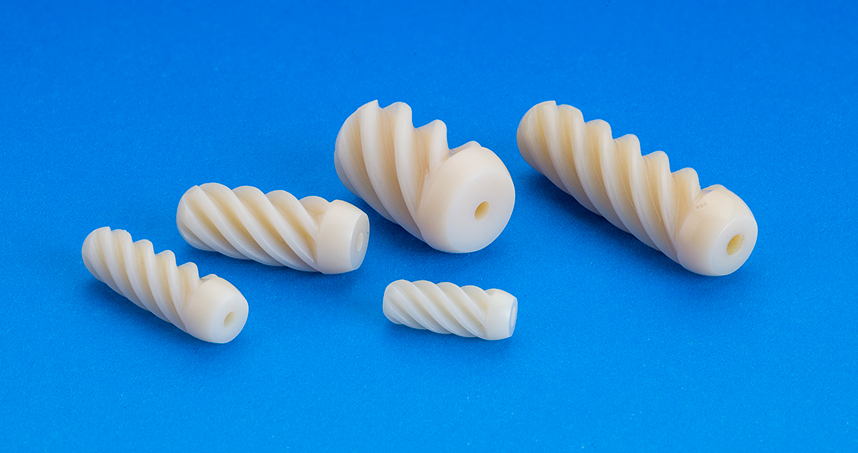Medical Device Using Northwestern-invented Biomaterial Receives FDA Clearance
Anti-inflammatory synthetic biomaterial aids tissue regeneration
An innovative orthopedic medical device fabricated from a novel biomaterial pioneered in the laboratory of Northwestern University professor Guillermo A. Ameer has received clearance from the U.S. Food and Drug Administration (FDA) for use in surgeries to attach soft tissue grafts to bone.
The biomaterial is the first thermoset biodegradable synthetic polymer ever approved for use in an implantable medical device. Its unique chemical and mechanical properties enable cutting-edge implant designs that protect the soft tissue graft during insertion and optimize graft fixation to bone.
 Ameer’s biomaterial, called CITREGEN, helps grafted tissues heal by recreating their intrinsic biochemical and structural support network.
Ameer’s biomaterial, called CITREGEN, helps grafted tissues heal by recreating their intrinsic biochemical and structural support network.
CITREGEN’s critical component, citrate, is a naturally occurring anti-microbial and anti-inflammatory molecule that plays a crucial role in bone regeneration, where it regulates cellular metabolic processes and the formation of mineral structures. Ameer spent more than 15 years studying citrate to develop new materials for regenerative engineering. This work that has been expanded upon by other researchers around the world, most notably Jian Yang, Ameer’s former postdoctoral trainee and current chair of The Lloyd and Dorothy Foehr Huck Center for Regenerative Engineering at The Pennsylvania State University.
“CITREGEN is an unprecedented and innovative bioresorbable biomaterial technology developed to support the body’s normal healing process and promote tissue regeneration,” Ameer said. “When used to fabricate devices for reconstruction of tissues, such as ligaments, blood vessels, bladder and bone, results have been impressive and beyond our expectations.”
Ameer is the Daniel Hale Williams Professor of Biomedical Engineering in the McCormick School of Engineering and a professor of surgery in Northwestern’s Feinberg School of Medicine. He also is founding director of Northwestern’s Center for Advanced Regenerative Engineering.
CITREGEN is the core material technology in the CITRELOCK Interference Screw System, which will be produced and marketed by Acuitive Technologies Inc. The system is intended for soft tissue attachment or fixing ligaments and tendon graft tissue in joint surgeries. After surgery, CITREGEN releases molecules essential to bone formation. As CITREGEN is absorbed by the body, it leaves behind a biocompatible ceramic structure that is metabolized by the body’s tissue. This bioresorption process avoids the bulk degradation and chronic inflammation that commonly accompanies other biodegradable polymers on the market.
The CITRELOCK Interference Screw System will become available through Acuitive’s orthopedic distribution partner in early 2021.
“After almost two decades of research on this advanced materials technology, I am delighted to see a transformative product get FDA clearance and come to market, an effort led by a spectacular team at Acuitive,” Ameer said.
Ameer also is a member of the Simpson Querrey Institute, Chemistry of Life Processes Institute, and the International Institute for Nanotechnology.
Editor’s Note: Acuitive Technologies is a sublicensee of Ameer’s company Vesseltek Biomedical. Northwestern and Ameer have financial interests in Vesseltek Biomedical.
